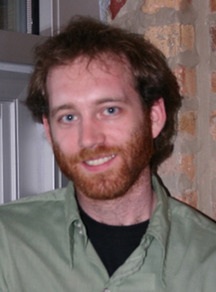Luci Shaw's Spiritual Erotics
Brad Fruhauff
 A propos of our Love Relief campaign, Relief's Poetry Editor considers what it means to look with love at something while reviewing Luci Shaw's What the Light Was Like (Wordfarm, 2006). As a point of order, he wishes to say that he began this post well before Valentine's Day, but while it's become a propos of the occasion, it is notably about Shaw's "spiritual erotics" rather than, say, the canned greetings you'll get today from e-cards.
A propos of our Love Relief campaign, Relief's Poetry Editor considers what it means to look with love at something while reviewing Luci Shaw's What the Light Was Like (Wordfarm, 2006). As a point of order, he wishes to say that he began this post well before Valentine's Day, but while it's become a propos of the occasion, it is notably about Shaw's "spiritual erotics" rather than, say, the canned greetings you'll get today from e-cards.
...To find some kind of essence-- the soul within the structure, taking my body in their eyes and fingers in a kind of lovemaking. I the love object.
As I read the above lines from "Life Drawing" in Luci Shaw's What the Light Was Like, I was struck by how they fly in the face of a line of postmodern thinking that is vexed by the power of the gaze. After all, seeing is almost the same as knowing in Western thought; we tend to act like seeing gives us essential information about people and things, when in fact we often see what we expect or desire to see - think of racism or sexism, but think also of your attitudes towards the elderly, or children, or liberals or conservatives. The gaze can be an extension of a mind anxious to avoid the surprises and risks of dealing with individual persons, a mind looking to see only iterations of what it already knows. The clichés of Valentine's Day come from the fossilization of our concept of love, from our inert and idealized notions of romance.
One might fault Shaw for being too complacent about her own looking in this book. One could accuse this gaze as being just as domineering and male ("They'd work to get beyond surfaces / to penetrate what lives / inside" [emphasis added]) as so many that have come before. But that would be to miss the point. As the book's title indicates, these poems are not about finding the same light everywhere she looks - about casting her gaze like a spotlight that turns all things one color - but describing "what the light was like" in specific places and persons. Shaw no doubt looks with an expectation of finding beauty, but it is a looking that at least tries to be open to the looked upon.
Thus she speaks of her looking as "loving," as "witness." These words put her looking in relationship to people and things rather than guarantee her authorial distance. In "Life Drawing," she puts herself in the object's place, imagining herself as a nude model in a drawing class. She calls the students' looking "a kind of lovemaking," and she, though naked and exposed to the ostensibly male gaze, is not merely object, nor sexual object, but "love object."
The challenge for a Christian reader and writer is to look with and bare oneself to this love. As Shaw models it, it is to believe that this love will discover the light without trying to trap it or own it.
At the same time, the co-creative capacities of art play a role in transforming the love object. In "The Redress," the speaker compares the other's gestures to a "too-large shirt" given her by someone else merely to cover her nakedness. Then she imagines undressing and redressing the other, performing a kind of makeover. But this makeover seeks to realize the fullness of the other, to provide her with "a silky second skin / that will keep growing as you grow."
If you've noticed the amount of sex and nudity, you'll appreciate my reference to a "spiritual erotics." Shaw's sexuality in these poems is as innocent and liberated as in Milton's Eden. Baptized by love, erotism becomes an electrifying pulse between and amongst people and things, truly part of our shared lives together. Its purity consists in its generosity; this love celebrates the other and seeks first to give of itself or to give honor and praise, rather than seeking sexual possession.
On this day when the word love is spoken with the casualness of a curse word, it's lovely and good to read Shaw as she luxuriates in her daughter-in-law's hospitality:
"I love the crisp word apple, with its hard and soft sounds, . . . . . . . . . . . . . . . . . . . . . . . . . . . the way light offers itself without measure, the way Christa reverses the Fall, slicing herself out to us-- her own tart sweetness--without reserve.
Brad Fruhauff is Poetry Editor with Relief. He holds a PhD in English from Loyola University Chicago and is currently an adjunct instructor in the Chicago area where he lives with his wife and 2-year old son. He has published fiction in The Ankeny Briefcase, poetry in Relief, Salt, and *catapult, and reviews in Burnside Writers’ Collective and The Englewood Review of Books.